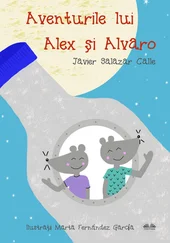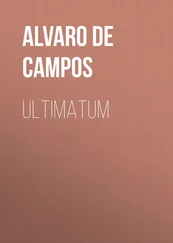As was generally the case, the opossum story came back to him during a peaceful interval: she’d accompanied her husband on a business trip to Hong Kong, a trip he had helped to organize, so his days at the office crawled lazily by, without his boss’s demands for action or his boss’s wife’s need for attention. During that time he checked his e-mail constantly because he knew that a message from her might arrive at any moment. He responded with long, intense letters that always made him feel less lonely while he wrote them, but which ended up being counterproductive. Perhaps because of its visual and sonic potency, the Web made him suppose that he had the world in the palm of his hand, and he was always somewhat disappointed to discover it was not so: despite his being able to read the news from Mexico with the intensity of someone who could still be directly affected by it, she was, in reality, in a Saigon cybercafé, and he was stuck inside the white monster of the World Bank — an air-conditioned Moby Dick — and what lay outside was the District of Columbia.
The story probably wouldn’t have significance for anyone else, even if they knew its secret. There was no way to know, really: he’d told it to his father one day, many months after it had happened to him. He did so in response to a message in which his father had reported that he’d taken his other grandchildren to the zoo in Chapultepec Park, where he’d noted an air of unbearable servitude in the animals’ eyes. As he supposed, the story of the opossum didn’t arouse any reaction: the next message from his father, which arrived almost a week later, was short on animal lore. Perhaps — it had occurred to him while expounding on details completely inappropriate in a letter to the world’s busiest man — he was telling all this to his father as a cry for help: he would have loved to sit down and have a drink with him and ask if he’d ever been in the same situation, but there was an insurmountable protocol separating them, according to whose rules male relatives may not share any information about their emotional lives.
It’s not really unusual to step outside at night and see one of those animals — he wrote his father — but at the same time it’s not so common as to be unworthy of celebration. During the warm seasons of the year, opossums live near some creek or gully; during the cold months, they occupy the blind spaces of the neighborhoods. They’re the cats of the cold, the digestive system of suburbia when it’s freezing out. Big and clumsy, they do their duty with the furtive dignity of the very ugly: they’re the phantoms of an ecosystem sustained by trash cans, the filth in an impeccable white world which is played out in little houses, each with its own garden, that go on and on, perfect and identical, into infinity.
He didn’t want to miss the privilege of having a smoke while contemplating such a strange animal, so he went ahead and lit his cigarette as cautiously as he could. He stood motionless, at a distance, smoking, his gaze fixed on the creature, which never took its eyes off him. When he had only a couple of drags left he decided to move closer: that it might get startled and run away was no longer so important: the cold rain was going to force him back inside the house soon anyway. Cautious as ever, he took a few steps; the opossum remained motionless. It was so young that perhaps it had not yet learned that fear is the basis of experience. He exhaled a final puff of smoke, tucked the cigarette between his thumb and index finger then flicked it away, far from the animal, which barely took its eyes off him long enough to see the burning tip of the butt fly through the air.
Until getting closer, he hadn’t realized that the opossum was barely larger than a rat. He extended his hand, with the palm outstretched, as if it were a puppy. The animal uncurled, shook itself off, and waddled along to the other end of the fence, where it settled down again without once looking away. By now he was trembling from the cold, so he went back into the house.
Inside he found all the nervous preparations for dinner underway. His wife told him to set the table, his regular chore at family celebrations: Latin Creole and Catholic, he had, in the family’s Lutheran landscape, an undisputed touch for livening up the whole presentation; there’s nobody like him when it comes to arranging the instruments of our prosperity, his father-in-law liked to say, with the slightly worried look of those patriarchs whose daughters have moved beyond their reach. The first time he’d set the table, his father-in-law’s wife had stared suspiciously at the splendors of her own board, but over time she’d learned to enjoy the fleeting excess. Shortly after a spring vacation they’d spent in Raleigh, it was her turn to host a meeting of her book club. After setting the table in her own gringo fashion it seemed like a paltry offering, so she redid it, imitating his Creole arrangement: no concealed weapons, everything in sight: the oil, vinegar, salt, pepper, and sauces, the dishes overflowing, the sliced bread laid in its basket, the bottles like gun barrels — one for every three guests — aimed straight up at the ceiling and heaven beyond, and the menacing sugary desserts laid out on the sideboard. Perhaps it was a coincidence, but this dinner turned out to be the most successful one so far. How exciting, said a neighbor, feeling caught between the abundance and her own embarrassment.
When he wrote to his father, he was aware that what he’d be looking for in his son’s messages were stories about the girls — he adored them because they were gringas but also never stopped worrying that they were too gringo. He knew that his father printed out his messages and took them home to read to his mother, and that she fantasized for days over the paragraphs about how her granddaughters were growing. For this reason he took special care to mention how the older girl, who was about to turn five years old that New Year’s, helped him as best she could with the unbreakable table utensils. The younger girl was still just a baby, and really didn’t do much of anything, so at the end he added a paragraph about an imaginary cough that she’d just gotten over.
Their New Year’s Eve celebration went on as usual, as he related in the e-mail: they ate dinner, and after putting the little girls to bed, turned on the television and sat down together to watch the countdown to midnight. As the year’send special didn’t look very promising, they made a strong pot of coffee to help them stay awake and keep the party going for three more hours. He took the last of his coffee outside with him when he went to have another smoke. The opossum was still there, trembling from cold and fear.
When he went back inside he mentioned his discovery. The first time he hadn’t said anything, but this second encounter now struck him as odd. With his in-laws he didn’t take the same perverse pleasure in reflecting on recycling and the filth in the suburban ecosystems as he did several months later in his e-mail to his father: in English, in the provinces, musing without specific meaning sounded like intellectualizing, suspiciously lacking in sincerity and simplicity. He said that there was an opossum crawling on the fence, that it was very young, that it had probably come down from a tree and couldn’t get back up to safety in the branches. Hardly looking away from the screen, his in-laws mentioned that there was plenty of wildlife in the neighborhood thanks to the creek nearby. The presence of opossums was a good sign because they ate snakes. His wife appeared a bit more interested: she was moved by the idea that it was a young animal. Are we going to help it get down? she asked him, but he had already surrendered to the spell of the TV and didn’t feel like getting wet again. It’s just got to get up the nerve to jump down to the grass, that’s all, he said. His father-in-law observed that, no matter what, it would be neither safe nor hygienic to try to trap it, not just like that, without any preparations. If it was still there in the morning, they would go outside with the necessary equipment to help it.
Читать дальше












